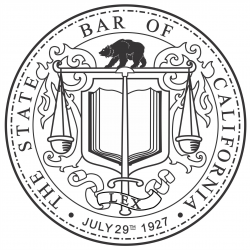The State Bar of California


Are you looking for a public service career that can make a difference?
A career with the State Bar will enable you to contribute to our vital mission of public protection. The State Bar is a regulatory agency that protects the people of California through oversight of the legal profession. Our mission also includes increasing access to legal services and furthering diversity and inclusion in the legal profession.
The State Bar offers challenging and rewarding careers requiring a broad range of skills and abilities. We offer competitive compensation, comprehensive benefits, and opportunities for growth and development, as well as an environment that encourages work-life balance.
Apply today for a career where your work can have meaningful impact!

Are you looking for a public service career that can make a difference?
A career with the State Bar will enable you to contribute to our vital mission of public protection. The State Bar is a regulatory agency that protects the people of California through oversight of the legal profession. Our mission also includes increasing access to legal services and furthering diversity and inclusion in the legal profession.
The State Bar offers challenging and rewarding careers requiring a broad range of skills and abilities. We offer competitive compensation, comprehensive benefits, and opportunities for growth and development, as well as an environment that encourages work-life balance.
Apply today for a career where your work can have meaningful impact!